The Edge Question 2018 - 2 [1]
 [2]
[2]|
|
|
|
Paul Bloom [17]
[17]
Brooks and Suzanne Ragen Professor of Psychology, Yale University; Author, Against Empathy
Why are we so often kind to strangers when nobody is watching and we have nothing to gain?
Giulio Boccaletti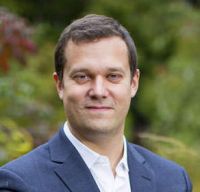 [18]
[18]
Chief Strategy Officer of The Nature Conservancy
How much biodiversity do we need?
Ian Bogost [19]
[19]
Ivan Allen College Distinguished Chair in Media Studies and Professor of Interactive Computing, Georgia Institute of Technology; Founding Partner, Persuasive Games LLC; Contributing Editor, The Atlantic
Is there a way for humans to directly experience what it’s like to be another entity?
Joshua Bongard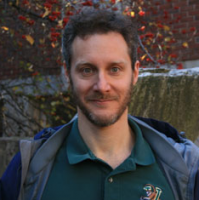 [20]
[20]
Veinott Professor of Computer Science, University of Vermont; Author, How the Body Shapes the Way We Think
Will a machine ever be able to feel what an organism feels?
Nick Bostrom [21]
[21]
Professor, Oxford University; Director, Future of Humanity Institute; Author, Superintelligence: Paths, Dangers, Strategies
Which questions should we not ask and not try to answer?
Stewart Brand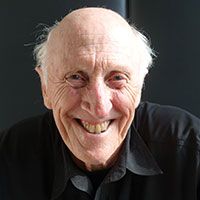 [22]
[22]
Founder, the Whole Earth Catalog; Co-founder, The Well; Co-Founder, The Long Now Foundation, and Revive & Restore; Author, Whole Earth Discipline
Can wild animals that are large and dangerous be made averse to threatening humans?
Rodney A. Brooks [23]
[23]
Roboticist; Panasonic Professor of Robotics (emeritus) , MIT; Founder, Chairman & CTO, Rethink Robotics; Author, Flesh and Machines
Can consciousness exist in an entity without a self-contained physical body?
David M. Buss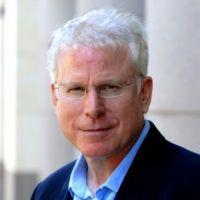 [24]
[24]
Professor of Psychology, University of Texas, Austin; Author, The Dangerous Passion
Will scientific advances about the causes of sexual conflict help to end the "battle of the sexes"?
Philip Campbell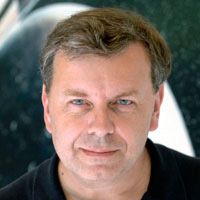 [25]
[25]
Editor-in-Chief of Nature since 1995; Beginning summer 2018, he will become Editor-in-Chief of Springer Nature’s portfolio of journals, books and magazines
How do I describe the achievements, meanings, and power of Beethoven's piano sonata “Appassionata”?
Jimena Canales [26]
[26]
Writer and faculty at the Graduate College, University of Illinois-Urbana Champaign; Author, The Physicist and the Philosopher
When will we accept that the most accurate clocks will have to advance regularly sometimes, irregularly most of the time, and at times run counterclockwise?
Christopher Chabris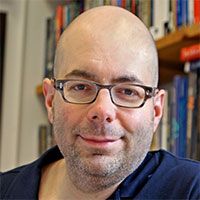 [27]
[27]
Senior Investigator, Geisinger Health System; Visiting Fellow, Institute for Advanced Study, Toulouse, France; Co-author, The Invisible Gorilla
How complex must be the initial design of the simplest machine that can learn from experience to achieve, at a minimum, the intelligence and abilities of a typical human being?
David Chalmers [28]
[28]
Professor, Philosophy & Neural Science; Co-Director, Center for Mind, Brain, & Consciousness, NYU; Distinguished Professor of Philosophy, Australian National U.
How can we design a machine that can correctly answer every question, including this one?
Leo M. Chalupa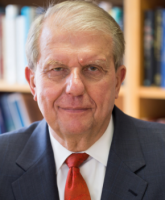 [29]
[29]
Neurobiologist; Vice President of Research, George Washington University
What new methodology will be required to explain the neural basis of consciousness?
Ashvin Chhabra [30]
[30]
Investor, Physicist, Author, The Aspirational Investor
Is there a fundamental difference between the biological world and the physical world?
Jaeweon Cho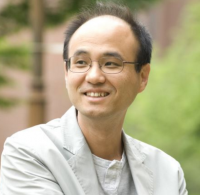 [31]
[31]
Professor of Environmental Engineering, UNIST; Director, Science Walden Center
Can we design a modern society without money which is at least as effective economically and politically as our current system?
Nicholas A. Christakis [32]
[32]
Physician and Social Scientist, Yale University; Co-author, Connected: The Surprising Power of Our Social Networks and How They Shape Our Lives
Will some things about life, consciousness, and society necessarily remain unseen?
David Christian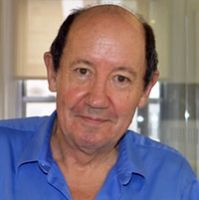 [33]
[33]
Director, Big History Institute and Distinguished Professor in History, Macquarie University, Sydney; Author, Maps of Time: An Introduction to Big History
Will we pass our audition as planetary managers?
Brian Christian [34]
[34]
Author, The Most Human Human; Co-author (with Tom Griffiths), Algorithms to Live By
Is the unipolar future of a "singleton" the inevitable destiny of intelligent life?
George Church [35]
[35]
Professor, Harvard University; Director, Personal Genome Project; Co-author (with Ed Regis), Regenesis
What will we do as an encore once we manage to develop technological solutions to infection, aging, poverty, asteroids, and heat death of the universe?
Andy Clark [36]
[36]
Professor of Logic and Metaphysics, University of Edinburgh; Author, Surfing Uncertainty: Prediction, Action, and the Embodied Mind
Will we soon cease to care whether we are experiencing normal, augmented, or virtual reality?
|
|
|
|
